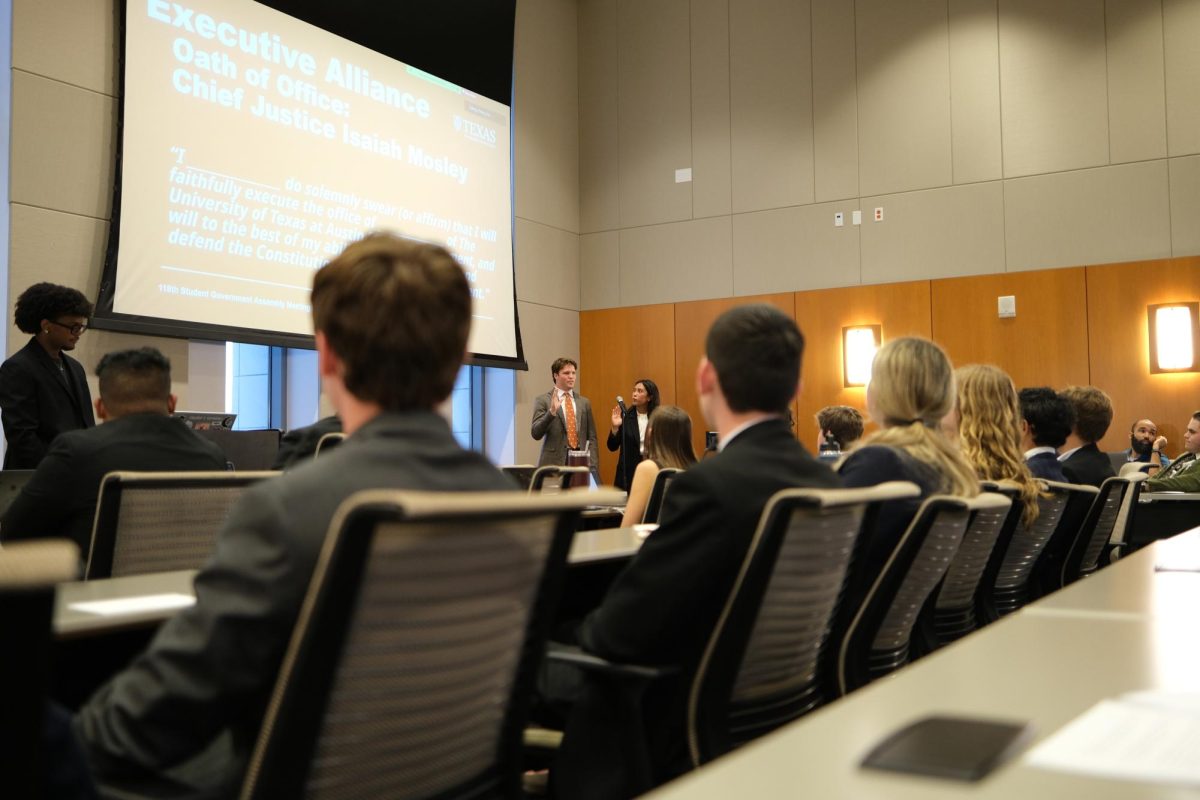Harry Ransom Center curator Danielle Sigler said when developing her own curator’s tour of the “Banned, Burned, Seized, and Censored” exhibition that took place Thursday night, she did not want her guided discussion to be as boring as a laundry list.
Jennifer Tisdale, director of Public Affairs for the center, said a curator’s tour allows visitors to learn more about the displays than if they visited on their own, as curators like Sigler created the exhibits.
The exhibition, which opened Sept. 6 and ends Jan. 22, 2012, features excerpts and symbols of literary works banned in the decades before World War II. Also on display are documents and photographs demonstrating the censorship organizations of the time, such as the New York Society for the Suppression of Vice, led by John S. Sumner, who organized controversial book burnings.
“It was a sort of celebratory burning of books,” Sigler said. “Censorship was in the newspapers, in the magazines and in the public eye.”
The danger of book burning became realized after the war began, Sigler said. A 1942 poster displaying the words, “Books are weapons in the war of ideas,” caused some Americans to perceive book burning as a brainwashing tactic of tyranny used by the Nazi Party.
“The Nazi Party book burnings did give some people pause,” Sigler said. “A radio broadcast would have listeners imagine Nazis going into American classrooms and telling students that Abraham Lincoln never existed.”
Sigler said support for censorship existed even after the anti-Nazi propaganda campaign, and those supporting it believed they were upholding American principles.
“‘The Grapes of Wrath’ was banned in Kern County, California where it took place, and afterwards John Steinbeck tried to get out of the country as fast as he could,” Sigler said. “Once this happened, it became threatening and scary for him — he feared for his life.”
UT alumnus Deborah Garza said she found it interesting that anyone would burn books, let alone remove them from the market. Garza said it must have been a political statement.
“It’s surprising that people considering themselves to be literate would [prevent] others from enjoying any books,” she said.
Psychology senior Sarah Solomon said she worked in the archives of the Ransom Center and got to see the plethora of works and collectors’ items held by the Center.
“I think it’s really kind of amazing that our university has so many resources,” Solomon said. “There’s still a lot from here that you’re not seeing yet. It’s comparable to the other large archives of the world.”

















